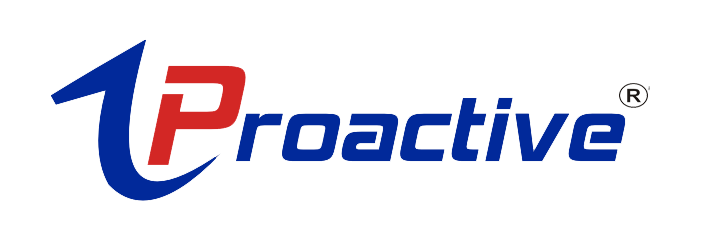WhatsApp Marketing: Best practices and strategies for 2024
- May 8, 2024
- Social Media Marketing
In the ever-evolving landscape of digital marketing, WhatsApp has emerged as a powerhouse platform for businesses to connect with their audience. With over 2 billion monthly active users, WhatsApp offers unparalleled reach and engagement potential.
As we step into 2024, mastering WhatsApp marketing becomes crucial for businesses aiming to stay ahead in the digital game. Here, Proactive Digital, a seasoned expert in digital marketing based in Jaipur, shares the best practices and strategies for WhatsApp marketing in 2024.
Understanding WhatsApp Marketing
Let’s start by understanding the platform and its audience. Pretty much everyone has WhatsApp on their phones in India. It is treated as an extension of the in-built SMS messaging on mobiles. Kind of like an RCS alternative, people use it to share media and contact each other on a personal & urgent basis.
Being a personal platform, it should be treated a little bit like email in terms of the emphasis on Opt-ins. WhatsApp marketing involves leveraging the messaging app’s features to communicate with customers, build brand presence, and drive sales. Unlike traditional marketing channels, WhatsApp offers a more personalized and direct approach, enabling businesses to establish meaningful connections with their audience.
Best Practices for WhatsApp Marketing
Just like any marketing platform, a good WhatsApp marketing campaign requires creativity, an understanding of the audience, the brand, and the best practices in marketing. Let’s take a look at some of the major best practices that have emerged for advertising on WhatsApp:
- Obtain Permission: Always seek consent before adding customers to your WhatsApp list. Unsolicited messages can lead to backlash and damage your brand reputation.
- Segmentation: It always helps to divide your target group into different parts based on their demographics. This way, one can craft more personalized messages that convert better.
- Engaging Content: The content of the ad campaigns are the single biggest factor that we can control. Utilizing multimedia formats like images, videos, and GIFs is ideal for capturing attention.
- Interactive Conversations: Encourage two-way communication by enabling features like polls, surveys, and quick replies. Engage in conversations with customers to build rapport and address their queries promptly.
- Timely Updates: Keep your audience informed about product launches, promotions, and updates through timely messages. However, avoid bombarding them with excessive notifications to prevent annoyance.
- Personalization: Customize messages with the recipient’s name and relevant details to enhance the personal touch. Personalized communication fosters a stronger connection and improves response rates.
- Optimize Timing: Schedule messages during peak engagement hours to maximize visibility and response. Analyze past data to identify the optimal timing for your target audience.
- Monitor Metrics: Track key performance indicators such as open rates, click-through rates, and conversion rates to evaluate the effectiveness of your WhatsApp campaigns. Use these insights to create positive feedback loops that refine and improve your results.
Strategies for WhatsApp Marketing in 2024
As experts in digital marketing with 15+ years of experience, we work with multiple major marketing mediums on a daily-basis. Here are some effective strategies that we are doubling down on because they are likely to prevail in the coming years.
- AI-Powered Chatbots: Implement AI-powered chatbots to automate customer interactions and provide instant support around the clock. Chatbots can handle routine queries, streamline processes, and enhance the overall customer experience.
- Rich Media Messaging: Embrace rich media messaging to deliver immersive content experiences. Leverage features like WhatsApp Status, stickers, and interactive catalogs to showcase products and services creatively.
- WhatsApp Business API Integration: Integrate the WhatsApp Business API with your CRM system to streamline communication and manage customer relationships more efficiently. API integration enables personalized messaging at scale and facilitates seamless transactions.
- Community Building: Foster a sense of community by creating WhatsApp groups or broadcast lists for loyal customers and brand advocates. Encourage members to share feedback, participate in discussions, and spread word-of-mouth referrals.
- WhatsApp Ads: Explore WhatsApp advertising options to reach a wider audience and drive conversions. Utilize targeted ads to reach specific demographics or retarget users who have interacted with your brand before.
Conclusion
WhatsApp marketing holds immense potential for businesses seeking to enhance their digital presence and connect with customers on a more personal level. By following best practices and implementing innovative strategies, businesses can leverage WhatsApp to drive engagement, foster relationships, and achieve their marketing objectives in 2024 and beyond. Proactive Digital stands ready to guide businesses through this dynamic landscape, empowering them to succeed in the ever-evolving world of digital marketing.
FAQ
Q1: Is WhatsApp marketing suitable for all businesses?
A: While WhatsApp marketing can benefit various businesses, its effectiveness depends on factors like target audience demographics, industry verticals, and communication objectives.
Q2: How can I measure the ROI of WhatsApp marketing campaigns?
A: You can track ROI by monitoring metrics such as conversion rates, revenue generated, cost per acquisition, and customer lifetime value attributed to WhatsApp campaigns.
Q3: Are there any legal considerations for WhatsApp marketing?
A: Yes, it’s essential to comply with data privacy regulations like GDPR and obtain explicit consent from users before sending marketing messages on WhatsApp.
Q4: What are the potential challenges of WhatsApp marketing?
A: Challenges may include maintaining user engagement, avoiding spammy practices, adapting to platform updates, and managing customer expectations regarding response times.









